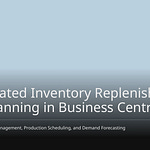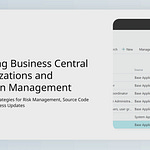Artificial Intelligence (AI) is transforming business operations and changing how businesses work. In 2024, about 72% to 78% of companies will use AI, recognizing its significant benefits. Enterprise Resource Planning (ERP) and Customer Relationship Management (CRM) systems play a crucial role in this transformation. They help make your organization operate better and faster.
These systems simplify tasks and enhance decision-making. For example, AI-driven ERP and CRM solutions can automate routine tasks, provide intelligent predictions, and improve customer interactions. The advantages are clear: you will experience enhanced efficiency and increased profits.
Key Takeaways
AI is changing how businesses work. By 2024, 72% to 78% of companies will use AI. This will help them work better and make more money.
Adding AI to ERP and CRM systems helps automate boring tasks. It also improves decision-making. This lets teams focus on more important jobs.
Machine learning and natural language processing are important technologies. They help with data processing, predicting trends, and making user experiences better in ERP systems.
AI-powered CRM systems can increase sales by 20-30%. They can also lower customer loss by 15-25%. This happens through personalized interactions and automation.
Good data management and integration practices are very important. They help businesses use AI successfully. This ensures they can grow and follow the rules.
AI Evolution in ERP/CRM
Historical Context
AI started being used in ERP systems in the late 1900s. At first, these systems mainly managed data and automated processes. As technology improved, businesses saw how AI could make these systems better. The arrival of AI was a big step forward. It helped ERP systems handle data more effectively.
Over time, some important changes shaped how AI is used in ERP and CRM:
These changes have made modern ERP systems more flexible and user-friendly. You can now use AI to handle boring tasks. This lets your finance teams work on more important activities.
Recent Developments
In the last ten years, using AI in ERP and CRM systems has grown quickly. Big companies like Microsoft and SAP have taken the lead. They added AI features to their products. This change has changed how businesses run. Here are some recent trends:
AI helps ERP systems by automating boring tasks. This lets finance teams focus on important work.
AI-powered predictive analytics changes operations like production planning and inventory management.
AI chatbots improve customer service by giving quick answers and solutions.
The role of AI in ERP systems keeps growing, especially in cloud settings. AI looks at large amounts of data fast. It finds patterns and trends that help with market research and understanding customers. Automating tasks like data entry and scheduling makes work easier. This allows employees to tackle more complex tasks.
Also, AI tools help create personalized customer interactions, which boosts engagement. Using AI in ERP systems is becoming crucial for business operations. Many companies report big efficiency improvements.
As you think about using AI in your business, remember that these tools not only make operations easier. They also help your teams make better decisions. The future of ERP and CRM systems is closely linked to AI. This will lead to smarter and more efficient business operations.
Key Technologies in AI for ERP Systems
Machine Learning
Machine learning (ML) is very important for improving ERP systems. It helps these systems learn from data and get better over time. You can use different ML methods to make your business processes better. Here are some common uses of machine learning in ERP:
Predictive Analytics: Look at past data to predict trends and demand. This helps you manage inventory and improve supply chain work.
Anomaly Detection: Improve cybersecurity by spotting unusual patterns in data. This keeps sensitive information safe from threats.
Personalization: Customize user experiences in ERP systems based on past actions and preferences. This makes the system easier to use.
Using machine learning can greatly improve your business. For example, automation can cut operating costs by up to 25%. Predictive analytics can make demand forecasts more accurate by 30 to 50%.
Natural Language Processing
Natural Language Processing (NLP) is another important technology that improves ERP systems. NLP lets you talk to these systems using everyday language. This makes communication easier and cuts down on complicated commands. You can ask for information or do tasks by speaking, like asking for sales numbers or making purchase orders.
NLP makes user experience better in many ways:
Enhanced Data Processing: NLP understands context, allowing for faster and more relevant data searches.
Improved User Interface: You can use chatbots and voice commands, making the system easier to access.
Continuous Learning: NLP systems get better over time, giving more accurate answers based on user interactions.
By adding NLP to your ERP system, you can make workflows smoother and need less IT help. This not only boosts efficiency but also creates a more engaging user experience.
Applications of AI in Business Operations
Sales and Marketing
AI makes sales and marketing much better. It helps you send personalized messages to your audience at the right time. Machine learning algorithms look at customer behavior and preferences. This helps you suggest products that fit their needs. As a result, your marketing materials reach the best leads.
Here are some important ways AI changes sales and marketing:
Advanced Predictive Analytics: AI helps manage supply chains and guess what customers want. This leads to better inventory management.
Data-driven Strategies: You get useful insights for quicker decisions through easy-to-use interfaces.
Personalization and User Experience: AI allows for custom marketing plans by predicting customer behaviors and likes.
Efficiency Gains through AI and Cloud: Automation in cloud settings boosts productivity and efficiency.
AI-powered CRM systems take care of boring tasks like data entry and lead scoring. This automation saves your employees time on manual work. Because of this, you increase productivity and improve customer satisfaction with quick, personalized responses. Companies using AI-powered CRM systems see an average rise of 20-30% in sales revenue and a 15-25% drop in customer loss.
Customer Service
AI is also very important for better customer service. Automated support through AI chatbots gives quick and accurate answers 24/7. This greatly cuts down wait times and improves the overall customer experience.
Here are some benefits of AI in customer service:
Provide 24/7 customer support: AI makes sure customers get help anytime.
Reduce response times: AI-driven suggestions look at customer interactions. This helps quickly find good solutions.
Improve customer satisfaction: Personalized responses and faster answers make customers happier.
AI automates tasks, lowering the need for human help and boosting productivity. It also makes data more accurate by removing manual entry mistakes. This gives you reliable insights for your business. Companies that use AI in customer service report better efficiency and improved customer experiences.
Strategies for Transforming Business Operations
Integration Best Practices
Putting AI into your current ERP and CRM systems can be hard but worth it. Here are some best practices to help make the integration easier:
These practices help you deal with common problems like old systems and outdated APIs. By focusing on modularization, you can break down old systems into services, making integration easier.
Data Management
Good data management is very important when using AI in ERP and CRM systems. Here are some strategies to think about:
Data Governance and Stewardship: Set rules and standards for managing data. This helps with compliance and aligns with your business goals.
Data Security and Privacy: Keep sensitive data safe with access controls and encryption. Top companies check that vendors have recognized certifications, like ISO 27001 and GDPR compliance.
Real-Time Data Integration: Make sure your AI applications have the latest information. This helps with smart decision-making.
Data Quality and Validation: Set standards for high-quality data. This ensures accuracy and relevance, which are key for effective AI solutions.
By focusing on these strategies, you can fully transform your business operations. This modernization will improve scalability and help with decision-making across your organization.
AI can greatly change your ERP and CRM systems. In the future, 79.1% of CRM users will see how important AI is for sales tools. By 2027, at least 50% of ERP systems will use generative AI to make things better for users. When you start using AI-driven solutions, you might notice a 15% increase in repeat sales because of personalized interactions.
This will have a big impact on your business. You will make decisions faster and work more efficiently. Using AI now helps you grow and succeed in the future. Think about adding these solutions to keep up in a fast-changing market.
FAQ
What is AI-driven ERP and CRM?
AI-driven ERP and CRM systems use artificial intelligence to make business processes better. They automate tasks, give useful insights, and improve how businesses interact with customers. This leads to working faster and making smarter decisions.
How can AI improve customer service?
AI makes customer service better with chatbots and automated responses. These tools give quick answers, cut down wait times, and personalize interactions. This results in happier customers.
What are the benefits of integrating AI into business operations?
Adding AI to business operations makes processes smoother, cuts down on manual tasks, and improves data accuracy. This helps with better forecasting, boosts productivity, and leads to more profits.
How does machine learning contribute to ERP systems?
Machine learning looks at past data to find trends and patterns. This helps ERP systems make accurate predictions, manage inventory better, and improve overall efficiency.
Is AI suitable for small businesses?
Yes, AI works well for small businesses. AI-driven solutions can automate tasks, boost customer engagement, and provide helpful insights. This makes them useful for organizations of all sizes.













